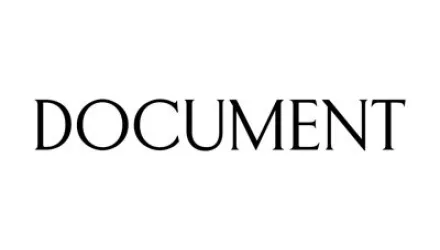Note
This op-ed was reprinted as " Playing the Blame Game in Africa" on July 23, 2007, in the International Herald Tribune.
SOME IN the West have recently begun referring to the 2008 Beijing Olympics as the "Genocide Olympics" because of China's continued business ties with Sudan and its reluctance to intervene decisively in the Darfur conflict. Is China really turning a cold shoulder to the humanitarian crisis in Darfur, or has the explosive charge of complicity in genocide blinded observers to China's aid and quiet diplomacy in Sudan?
Global outrage is growing over the massacre in Darfur; Beijing is not exempt from this feeling. But there is a significant difference between China and the West in approaching the issue.
China's strategy is one of humanitarian and development aid plus influence without interference, in contrast to the West's coercive approach of sanctions plus military intervention. Through high-level diplomacy — such as Chinese President Hu Jintao's visit to Sudan in February and the dispatch of special envoys — and multilateral platforms such as the United Nations and the China-Africa summit, China has been making tactical moves to press the Sudanese government to comply with the international community's requests. China deserves credit for securing Khartoum's agreement on allowing UN peacekeeping forces in Darfur.
China's approach toward the Darfur crisis takes the long view. It perceives the root causes of the turmoil as poverty and a lack of resources, which have led to decades of fighting between local tribes and ethnic groups over basic necessities, such as water resources, land, and infrastructure. Therefore, China's approach to solve the long-lasting conflict in the Darfur region has been to provide comprehensive development assistance in addition to humanitarian aid.
Beijing has agreed to offer $10.4 million of humanitarian aid to Darfur and delivered half of the aid during its special envoy's trip to Sudan in May. Beijing also has invested $30 million in a dam project in the northern part of Darfur, as well as provided goods and materials for building more than 120 schools, facilities for transportation and electric generation, and other necessities for economic development. China also plans to send 275 military engineers to a UN force this month to implement initial stages of the Kofi Annan peace plan, which bolsters African Union peacekeeping forces in Darfur.
The lack of progress in stopping the massacre and the slow effect of the development aid has left China in an awkward position. On the one hand, due to its foreign policy principle of non interference, as well as its investment in Sudan, Beijing traditionally has been reluctant to put strong pressure on Khartoum, believing that wielding sticks would only prove counterproductive. On the other hand, outsiders assume that China's substantial interest in Sudanese oil gives it persuasive power over Khartoum.
However, China's political influence in Darfur should not be overvalued. At the same time that Beijing's investment in Sudan provides economic leverage, it also makes Beijing a hostage. Consistent with its non interference foreign policy, China does not attach political conditions to its economic relationship with Khartoum, thus making it a more credible partner to Sudan.
When Western leaders press Beijing to flex its economic muscles in the Darfur crisis, they often underestimate the tendency of African countries — including Sudan — to resist influence from external forces. Beijing will lose its credibility and de facto influence if it overreaches its will politically. The effective influence that Beijing can exert over the Darfur crisis lies in its delicate balance between practicing an influence-without-interference strategy and maintaining the hard-won trust of the Sudanese government.
Frankly, it seems more convenient for Western leaders to blame China than to face their own responsibilities for a humanitarian crisis that they could do far more to stop. Given Washington's oil-centered foreign policy throughout the past whole century and its previous record of violating the UN-sponsored sanctions against South Africa's apartheid government under the "Constructive Engagement" argument, it seems the current outcry against China is at least partially a tactic to divert public attention.
When judging China's Sudan policy, one must also bear in mind that this is an integral part of China's overall policy toward Africa. China no doubt has its own interests in Africa, but its engagement there equally and sincerely takes into account the interests of African countries — and their desire to, foremost, promote economic development. China's investments in Africa have extended beyond just oil and other natural resources to other areas where infrastructure development is needed.
As Harry Broadman, an economic adviser to the World Bank's Africa Department, mentioned in an interview, "The Chinese are making investments in light manufacturing, water services, food processing, textiles, telecommunications and tourism, and in other kinds of noncommercial infrastructure . . . Regardless of whether it is equity or debt, they are filling gaps in investment in Africa which are needed."
In response to the "new imperialism" charges against China's engagement with African countries, President Levy Patrick Mwanawasa of Zambia has said that China provides aid, offers loan deductions or exemptions, jointly develops resources, and invests in basic infrastructure, leaving the added value in Africa. It is hard for him to see these as "imperial" actions, since they contrast sharply with the actions of European imperialists in past centuries, who exploited Africa's rich natural resources and ran away, profiting at the expense of the poor local people. Beyond development cooperation, China's principle of exerting influence but not interfering and imposing is consistent with African practice, and the final political decision will have to be made by Africans.
In the face of increasing pressure from the international community, China may consider bolder options. However, the rest of the world should not simply play the blame China game. If there is a linkage between the Darfur crisis and Beijing Olympics, it should lie in the West and China together using the spirit of the Olympics — mutual understanding, friendship, solidarity, and fair competition — with their sympathetic hearts to collectively create a better future for Darfur.
Jason Qian is a fellow at the Harvard Negotiation Project at Harvard Law School. Anne Wu is a research fellow at the Belfer Center for Science and International Affairs at Harvard University's Kennedy School of Government.
Wu, Xiaohui (Anne) and Jason Qian. “China's Delicate Role on Darfur.” The Boston Globe, July 23, 2007



